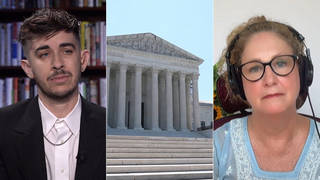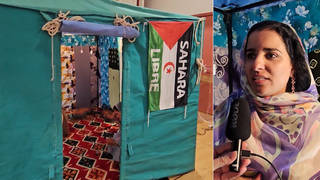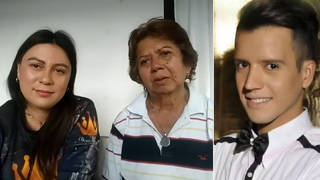Civil Defense workers in Gaza have now recovered at least 310 bodies buried in a mass grave at the Nasser Medical Complex in the southern Gaza city of Khan Younis. Earlier today, U.N. Human Rights Chief Volker Türk said he was “horrified” by the mass grave which was found two weeks after Israeli forces ended its siege on the hospital. Some of the bodies found had their hands tied behind their backs.
Today marks 200 days since Israel launched its assault on Gaza. On Monday, the U.N. special rapporteur on the right to health, Tlaleng Mofokeng, warned the impact of the Israeli war will be felt for generations.
Dr. Tlaleng Mofokeng: “Mental health, intergenerational trauma, the kinds of acute assistance, medical debriefing, psychological debriefing, that many children still have not received, is of serious concern. And often, of course, we see the physical injury, and because it’s physical, one can appreciate the severity of it. But the acute mental distress, that will then turn into anxiety and other kinds of mental illnesses later on in life, is really, really important to start thinking intentionally about.”











